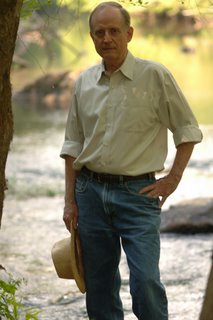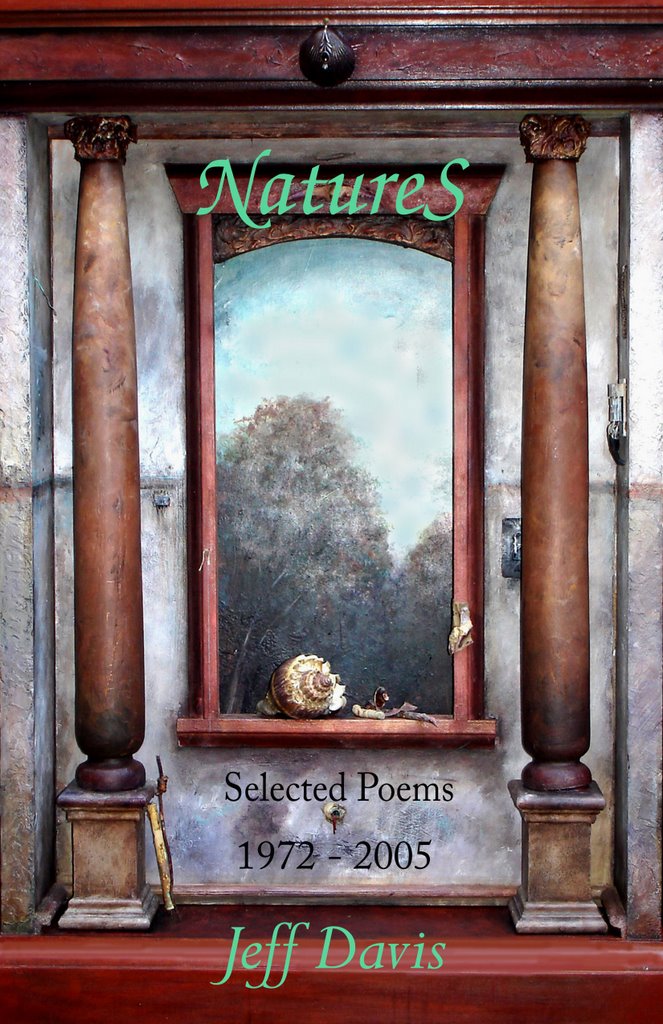Applewhite Tonight at Malaprops
 Durham poet James Applewhite appears tonight at Malaprops bookstore in downtown Asheville to read from his new Selected Poems. The reading begins at 7:00; there's a wine and cheese reception just before, beginning at 6:15.
Durham poet James Applewhite appears tonight at Malaprops bookstore in downtown Asheville to read from his new Selected Poems. The reading begins at 7:00; there's a wine and cheese reception just before, beginning at 6:15.Jim has taught English and writing classes at Duke since the late sixties, and before that taught at UNC-G. He started teaching in Greensboro just two years past his BA, when it was still styled “The Women’s College of the University of North Carolina”, a dated name indeed. Jim was on the faculty when I spent a semester there in the spring of 1967, and though I didn’t have him for a class, I got to know him otherwise. We in the writing program were a small, almost incestuously close-knit bunch, and we spent time together outside of class - at parties, in the dining hall, all over. It was a situation, as Jim said when we talked today, where “writing was uppermost”, and the combination of “fellowship and devotion to writing as art and craft was unique.” I would have to say Amen.
His Selected Poems, just released by Duke University Press, is a real accomplishment, and Jim’s taken the chance to do something besides just republish the best of his work over the years. He wanted, in fact, to “clarify issues”, as he says in his preface, and he’s reordered the way we’ll have to think about the sequence and internal relationships of his work. The new collection’s more chronological organization brings together poems that were, for various editorial reasons, relegated to different volumes, though composed from the same momentum, or simply omitted. The second section of the new book, for example, reassembles a collection of what Jim originally thought of as poems evoking spots of time, “permanent moments”, as he says, such as those the great English romantic poet Wordsworth, one of Jim’s favorites, often proposed in his poems, luminous intensities of persons in landscape of given earth. The fourth section contains poems that were left out of Following Gravity, a collection published in 1980, because the editor, Donald Justice, saw them as incongruous company for others in the collection.
The poems in all the book’s sections speak of authentic encounters with the lives of persons who, as Jim speaks of his grandfather in an early poem, “kept the old way in changing times”, whom he sees
Bowed to his handplow, bent-kneed, impassive,
Toiling in the sacrament of seasons.
They speak, too, of encounters with the collection of phenomena, rivers, trails, forests, and Time that we call Nature, a thing we half discover and half invent, as Wordsworth had it. Here’s an early poem that puts self in landscape to see what is found in both:
Revisitings
Sunday makes shine a still more sultry water
In this summer air. Grass returns prodigal with seed.
These birds that perk and skip seem living souls.
Magnolia flowers are reminiscent of childhood and candles.
Past a line inscribed on leaves by a bobwhite’s whistle,
I suspect a different self like a nobler brother.
Mimosa trees in flower, piles of clouds
In an horizon without perspective, help me recall.
I sit on the hill of an avenue of trees, feeling
That I want to say hush, hush, to the traffic.
For a little while I feel close again to a person
Who one time existed under immensely tall trees.
A wind from where shadows are generating rain tells me
This day stands always in pools behind doors I have closed.
How have I closed away my best self and all of his memories?
Many of the tongues of grass are speaking to the sun,
Obscured for a moment, in a language of vapor from underneath.
Labels: poets

0 Comments:
Post a Comment
<< Home